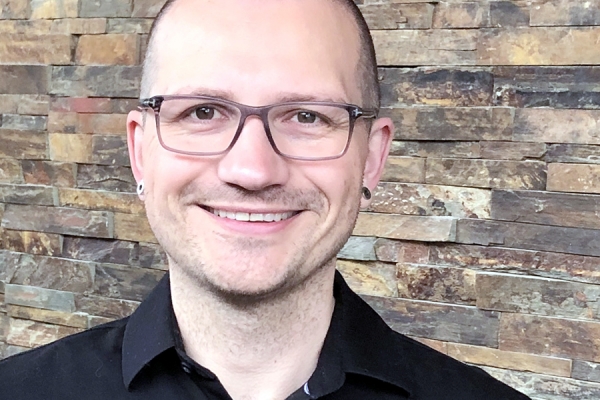Issue No. 4, July 2024

Social Sciences & Professional Studies, Part Two: Political Science, Psychology, and Social Work
Message from Dr. Cheryl Collier, Dean, Faculty of Arts, Humanities & Social Sciences
Welcome to the fourth edition of our Faculty newsletter The FAHSS View!
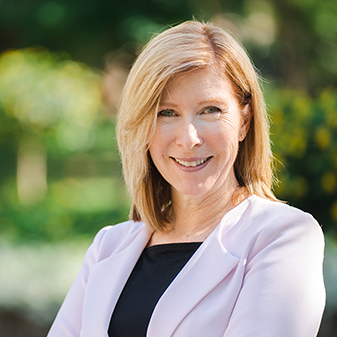 This FAHSS View took a bit longer for us to get to you because this has been such a busy academic year! In our fourth edition, we highlight the second half of the largest program area in FAHSS - the Social Sciences and Professional Studies. Here you can read award winning news from our two professional accredited programs – Psychology and Social Work - as well as highlights on student research and experiential learning in Political Science.
This FAHSS View took a bit longer for us to get to you because this has been such a busy academic year! In our fourth edition, we highlight the second half of the largest program area in FAHSS - the Social Sciences and Professional Studies. Here you can read award winning news from our two professional accredited programs – Psychology and Social Work - as well as highlights on student research and experiential learning in Political Science.
Beyond this, we are also extremely excited to share early mock up drawings of Phase one of our brand-new FAHSS Student space on the first floor of Chrysler Hall Tower. This is the very first space to be earmarked especially for our amazing Arts, Humanities and Social Science students! In it, FAHSS students can gather, study, collaborate, and work together across all our programs and with their colleagues across the university. If you are walking by the space, take a peek through the window to watch the transformation in action! We hope to open this brand-new student collaboration hub in the Fall of 2024. Please consider joining our early donors such as the Society for Arts Humanities and Social Sciences (SAHSS) who have generously contributed to this important project. You can find the QR code to donate below.
I hope you enjoy reading the news from the Social Sciences and Professional Studies, Part Two. Next year, the FAHSS View will move into more regular (and shorter) reports from across the Faculty to keep you informed of all of the FAHSStastic things happening here with our fabulous students, faculty and staff.
Please stay in touch and have a safe and productive summer!
Dr. Cheryl Collier
Contents:
Student Collaboration Hub
Dr. Charlene Senn receives Mary Lou Dietz Equity Leadership Award.
Social work professor moves from success to success
Marissa Rakus’s academic journey
The more you research the more you find out what you don’t know
Esentsei Staats-Pangowish
School of Social Work welcomes two new faculty members
Siham Elkassem, PhD
Michael Bennett, PhD
Political Science Research Assistants recognized
Psychology professor emeritus Jerome "Jerry" Cohen passes
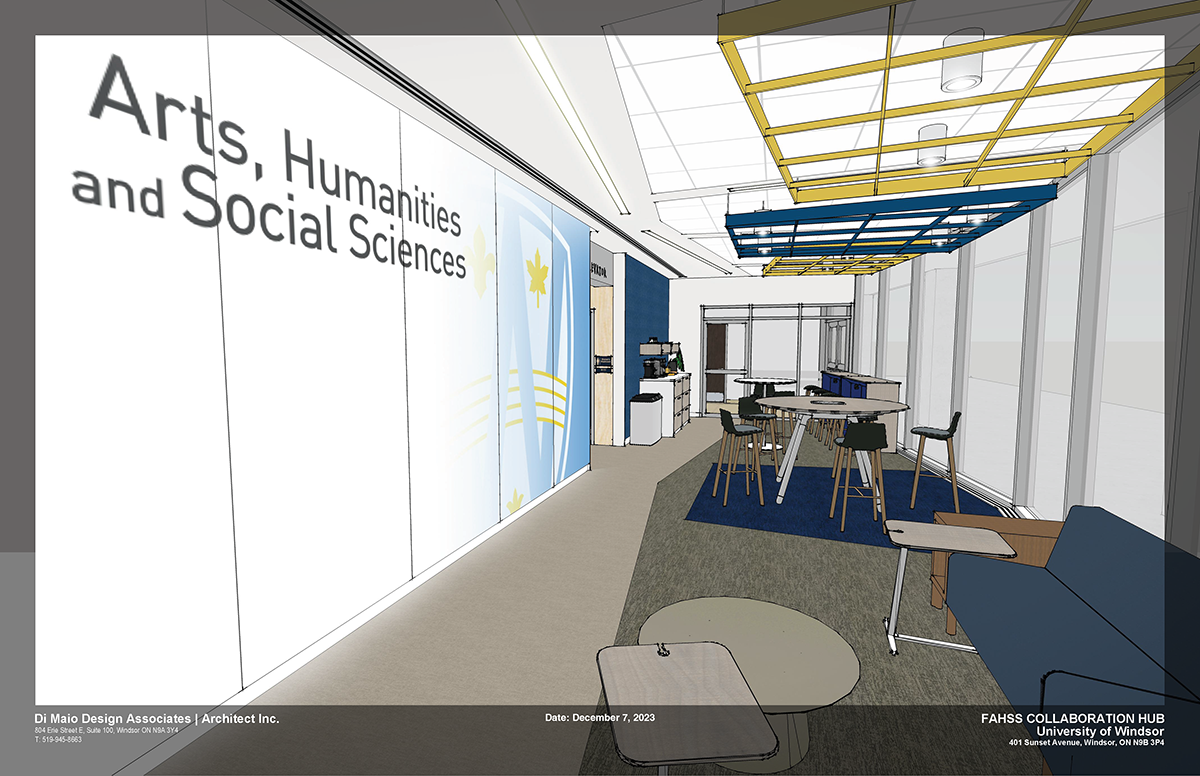
For the first time in the history of the arts, humanities and social sciences at the University of Windsor, FAHSS will have a dedicated space for its students housed on the Main Campus.
Phase One of the Collaboration Hub will be located on the first floor of Chrysler Hall Tower in the section between the two sets of fire doors or open space between Student Awards and Financial Aid office on the north side of the ground floor.
Phase One will feature a large white board, along with three distinct areas -- lounge, group study, and solo study. Construction on Phase One has just begun!
Get involved!
You can support the creation of the FAHSS Student Hub with your donation to the FAHSS Dean’s Capital Fund. Donate to the University of Windsor FAHSS Dean’s Capital Fund, or use this QR Code:

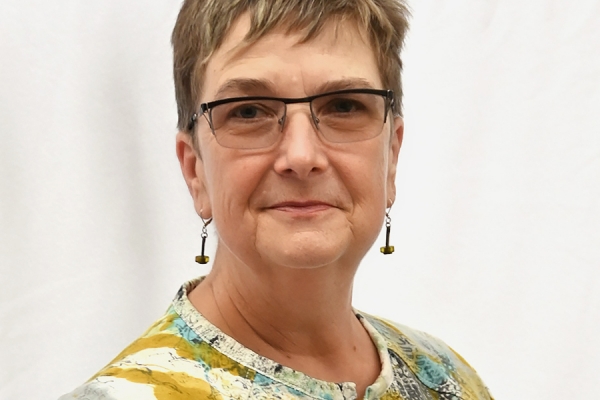 Award recognizes contributions to advancing equity
Award recognizes contributions to advancing equity
Social work professor, Adrian Guta, conducts research into HIV, substance use, and harm reduction. Last fall he was named the 2023 Fulbright Canada Research Chair in Public Health at Johns Hopkins University. This appointment was hosted at Johns Hopkins through a pre-arranged affiliation between that institution and Fulbright Canada, whose research chair program promotes opportunities at select universities for exceptional scholars.
The award came with $25,000 U.S. and a visiting professor post at the Bloomberg School of Public Health from September to December.
“I’m honoured to receive the Fulbright and to collaborate with leading public health scholars at Johns Hopkins,” said Dr. Guta, who holds a PhD in public health sciences.
The Research Chair appointment coincided with his sabbatical and has allowed Guta to continue his focus on research, mentoring doctoral students and post-doctoral fellows, and grant writing through June 2024. Residing in Baltimore last fall, he conducted comparative research on the impact of unregulated fentanyl, which has contributed to tens of thousands of deaths across Canada and the U.S., and the feasibility of providing a “safer supply” of drugs in the U.S. context.
Safer supply is a Health Canada-sanctioned approach to reducing overdose deaths by providing prescriptions for pharmaceutical-grade alternatives to the toxic drug supply. Guta is involved in several CIHR and SSHRC-funded safer supply research projects.
“The early evidence from safer supply programs shows they are dramatically reducing the risk of overdose and changing the lives of people who use drugs across the country,” he said.
Guta has been leading a Canadian program of research on these issues through the pandemic and was excited to collaborate with U.S. public health scholars, drug policy experts, and harm reduction practitioners to explore the transferability of the Canadian model.
He regularly partners with community and clinical partners to design research studies which meet the needs of patients and service users. Guta’s research is supported by funding from the Canadian Institutes of Health Research (CIHR), the Social Sciences and Humanities Research Council (SSHRC), Health Canada, and the Ontario HIV Treatment Network.
Dr. Guta is the recipient of the University of Windsor, Outstanding Faculty Research Award Mid-Career Scholars/Researchers (2023); and Emerging Scholars/Researchers Award (2020); the Canadian Association for HIV Research (CAHR)/Canadian Foundation for AIDS Research (CANFAR) – Research Excellence Award – Social Science Track (2022); and the Royal Society of Canada, The College of New Scholars, Artists, and Scientists. Inductee (2021).
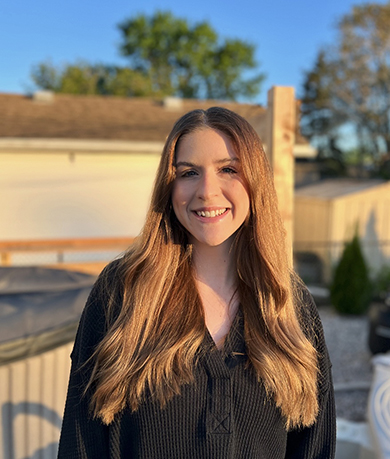 Research into women’s health sparks passion of psychology student
Research into women’s health sparks passion of psychology student
In her first year of post-secondary study, Marissa Rakus says, she was very shy.
“I was a very quiet, anxious student coming into university for sure,” she says. Now a doctoral student of psychology, she says serving as a peer mentor “honestly changed the whole trajectory of my university career and even my life.”
“Marissa was a student in my Introduction to Psychology course. She was an excellent student, but I don’t think she ever talked in class,” recalls Jill Singleton-Jackson, professor of applied social psychology, and associate dean for student experience and inter-faculty programs.
“Toward the end of her first year she really blossomed from a very shy, quiet (but always so bright!) student to becoming active in the department and a mentor for Intro. to Psychology. Then she became a senior mentor for the leadership course.
“Marissa was accepted to the applied social psychology graduate program, and I am so fortunate to be her advisor and have the opportunity to watch her amazing progress as a scholar and researcher.”
Rakus says she has always been interested in women’s health research.
“I know a lot of women in my life, and even myself, struggle with the interactions with health care providers or just formal services in general.”
In the third year of her undergrad, she reached out to Dr. Jackson regarding getting more involved. Her professor started giving her jobs helping with various events. Rakus also connected with professor Kendall Soucie, who runs a research program studying the health care experiences of women with reproductive issues.
“I reached out to Dr. Soucie saying that I was really interested in learning more about the research, getting involved in research, and doing whatever I can, creating transcripts and working my way into the research,” says Rakus. “I was interested in going to grad school at this point. So, I joined her lab in my third year, and I think that's where my love for women’s health research sparked.”
Rakus started exploring the literature and found she was drawn towards gender-based violence research and women’s health: “I would say that being in Dr. Soucie’s lab and actively participating in different research projects is what brought that about for me.”
From there she did her master’s thesis while working at the Welcome Centre Shelter for Women and Families, and later acquired a job there.
“I did interviews with the women there, and I was very lucky to have two people in my committee, Drs. Patti Fritz and Betty Barrett, who both had a connection to the Welcome Centre,” she says. “It was a full circle moment for me. I found an area of research that I am passionate about.”
Rakus found it “eye-opening” working with this population.
“I realized the research I do is so important,” she says. “To get first-hand stories from these people and be in that environment, because I remember stepping in for those interviews. When I walked into the shelter, I almost felt scared.”
Today, Rakus has completed the first year of her doctorate journey.
Before a doctoral student can start their dissertation, they must do a systematic literature review on a topic that they are interested in, usually this topic will be their dissertation topic. Rakus wants to focus on medical gaslighting.
“Specifically women, because that’s the population that it happens to most often: marginalized, racialized women,” says Rakus. “Their experiences with being invalidated, belittled, and not taken seriously by health-care providers.
“So that's where I’m at right now. In Dr. Soucie’s lab, we’re going to start a project where we do an online study with women about their experiences, just to get some preliminary data, because that’s what I do want to look at for my dissertation, and possibly conducting focus groups with women to hear their experiences.”
The next step would be to come up with some sort of deliverable on results and offer health-care providers information on how to do better.
“When I’m searching for medical gaslighting more generally, I find all these studies that come up about women, women, women, even when I’m not actually searching for that,” says Rakus. “It’s because the medical system is built on and based on male symptomology and their anatomy and built by men as well. I don’t think women were, from what I've seen so far, even involved in medical studies until the 1990s, which is not that long ago.”
Rakus is now the graduate co-ordinator for the interdisciplinary Health Research Centre for the Study of Violence against Women.
“We also are collaborating, and I’m working as a community liaison between the Research Centre. We have a Violence Against Women Coordinating Committee for the City of Windsor and Essex County,” she says. “They work with all of the different organizations within Windsor that focus on intimate partner violence.”
Rakus’s biggest takeaway from her academic journey so far is that you need to push yourself out of your comfort zone.
“That’s what I had to do to be where I am now,” she says. “I wouldn’t be in grad school if I didn’t have that friend who pushed me, and I stepped out of that comfort zone, and mid panic attack too,” says Rakus. “So yes, more experiences, and there are so many possibilities in university. If you don’t take advantage of them, it’s a personal loss really.”
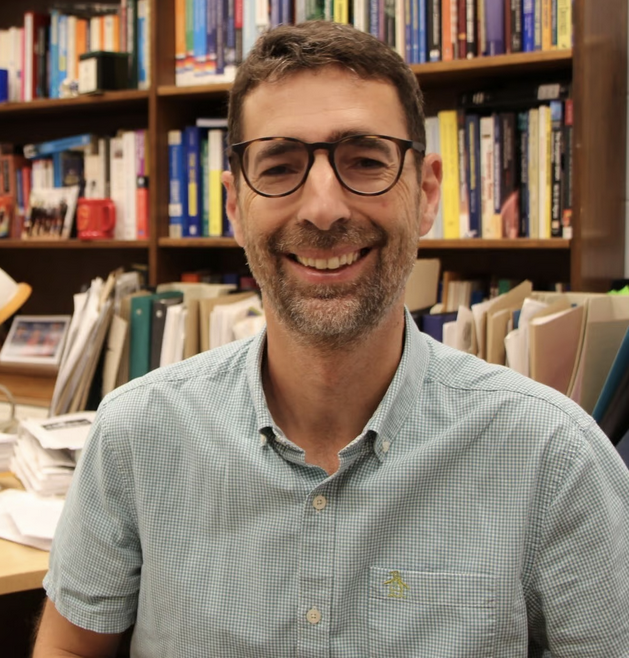 The more you research the more you find out what you don’t know
The more you research the more you find out what you don’t know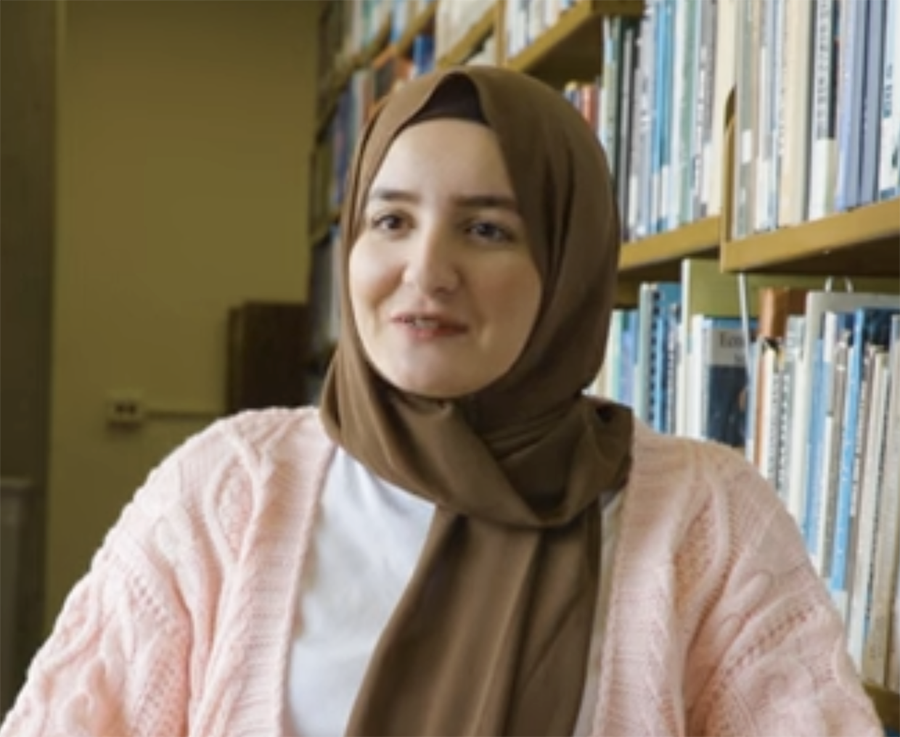
Professor John Sutcliffe, PhD, found as a graduate student, that he enjoyed research and teaching. Being a professor is a great way to do both of those things.
Sutcliffe believes in full participation in his academic life. He served as Head of the Political Science department for many years. Currently, he is serving as graduate chair in the department but there is a sabbatical planned.
Sutcliffe describes himself as an “academic gadfly.”
“The more you research the more you find out what you don’t know. And that’s one of the great things about research; you find interests in things you didn’t know much about,” says Dr. Sutcliffe. “My original research was on EU integration, and this came to inform my later studies of integration between Windsor and Detroit.”
Currently, he is working with recently graduated student Tartil Shaheen, MA Political Science on a research project looking at the language used in speeches made in Parliament. The focus is on the political responses to immigration in Canada, particularly the way politicians use language when speaking about different types of immigration.
“Tartil is a fantastic student, and I piggybacked my research onto her project,” he says.
As Tartil Shaheen comments, “Dr. Sutcliffe's mentorship and expertise has been instrumental in shaping my research and academic growth. So, I’m excited to continue the collaboration with him!”
A related research project, which also involves Shaheen, involves working with Dr. Lori Buchanan, a Clinical Neuropsychologist in the Psychology department and Associate Dean in the Faculty of Graduate Studies. Dr. Buchanan researches word recognition and normal memory processing.
“A computer science student in her lab uses AI to scan large amounts of text to identify word associations and patterns.” They are using this technology to examine Canadian parliamentary debates over a 20-year period to identify the words used in debates on immigration. “We can do this to examine if and when immigration is described as being ‘valuable’ to Canada or a ‘threat’ that is dangerous and a problem to be solved.” The project will look at language used in relation to different types of immigrant/immigration, different political parties, and by MPs from different parts of Canada. “Is the language used in debates in Quebec different from Ontario, or Alberta?”
“We started with the election of Stephen Harper to today,” he explains. “Three governments each -- PCs one majority, two minority governments; Liberals one majority, two minority governments. We can therefore identify shifts in language over time and depending on the political party in power.”
Tartil Shaheen, MA Political Science, interview Spring 2023
“Dr. Sutcliffe's mentorship and expertise has been instrumental in shaping my research and academic growth. So, I’m excited to continue the collaboration with him!!”
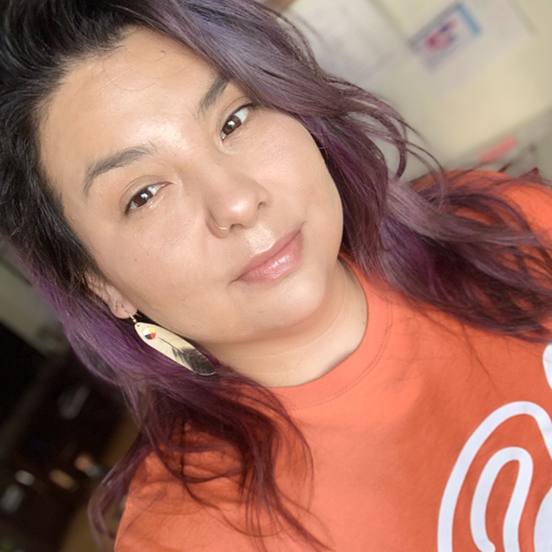 Esentsei Staats-Pangowish joins Political Science
Esentsei Staats-Pangowish joins Political Science
Esentsei Staats-Pangowish has joined the University of Windsor, Political Science Department as an LTA (Limited Term Assistant) Professor. In addition, she has been a Sessional Instructor in the Faculty of Law since 2021.
Pangowish is a PhD Student at Osgoode Hall Law School, York University. She completed both her Master of Laws and Juris Doctor degrees at the University of Windsor Law School, and a BA (Honours) in Sociology with a Minor in Multicultural & Indigenous Studies at York University. When Pangowish received her master's degree in June 2023, she became the first Indigenous graduate of Windsor’s LLM program.
Haudenosaunee and Anishnawbe kwe from Six Nations of Grand River & Wiikwemkoong Unceded Territory, Pangowish works to break down barriers between settler and Indigenous communities through education.
Since earning her Juris Doctor degree, Pangowish has taught Indigenous studies and Indigenous legal orders at the University of Windsor and the “Combat Indigenous Law in Colonial Spaces” course at the University of Toronto. She is a facilitator for Bimickaway training in Indigenous justice for Ontario’s Attorney General. Pangowish recently joined the Canadian Political Science Association’s Reconciliation committee.
This fall she will teach POLS 2000 Indigenous Policy and Constitutional Relationships, and 4000 Indigenous Nation-Building: Traditional Governance in a Modern Era. In the Winter term teaching POLS 2200 Introduction to Public Administration, and 3000 Indigenous Treaties and Land Claims.
This past winter, while teaching the “Residential Schools and Legacy” course at Windsor Law, Pangowish planned and completed a field trip to an Ontario residential school for 30 people.
School of Social Work welcomes two new faculty members
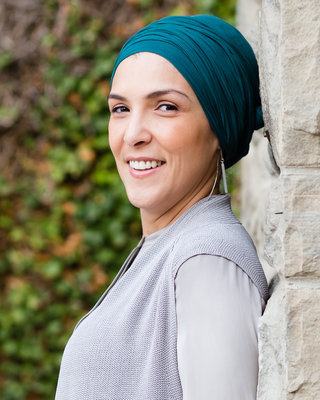 Siham Elkassem, PhD
Siham Elkassem, PhD
Dr. Siham Elkassem is joining the School of Social Work on July 1, 2024, as a tenure-track faculty member. She is a graduate of Memorial University (PhD 2023) and King’s University College of Social Work, Western University (MSW 2016, BSW (Honours) 2015).
Elkassem has been a sessional instructor since 2021 teaching Western’s Community Practice, and Social Work Practice with Immigrants and Refugees: Local and Transnational Context, graduate courses.
Her major fields of research interest include:
- Critical ethnography, community-based, activist approaches to research and practice rooted in critical race and anti-colonial frameworks.
- The implications of racism, Islamophobia, Anti-Muslim racism, racial trauma, intersectional oppression, racial inequalities, substance use, and addictions, particularly on access and outcomes across social systems.
- Advancing critical research with racialized populations to inform social work practice, education, and policy.
In my social work practice, “I work with youth, individuals and families to create a space where mental wellness is actualized through personal empowerment. My therapeutic approach includes trauma mapping, regulating emotions and developing coping skills through therapeutic interventions,” says Elkassem. “I am trained in CBT, DBT, EMDR, Narrative Therapy and Racial Trauma informed approaches. I have expertise in the mental health and psychological consequences of oppression, racism, homophobia, Islamophobia and other forms of social oppression and discrimination.”
Elkassem received several scholarships and awards as a graduate student. She is a Fellow of the School of Graduate Studies (2023-24), School of Social Work, Memorial University; received the Ontario Association of Social Workers (OASW) Distinguished Social Worker Award, London and Area (2022-23); was awarded an Excellence in Diverse and Inclusive Teaching award from the Social Work Student Association, Kings University College (2021 – 2023); the Memorial University School of Graduate Studies Dean’s Excellence Award $15,000 over 3 years: Examining Islamophobia and Anti-Muslim Racism Through the Lived Experience of Muslim Youth (2021 – 2024); and the Social Sciences and Humanities Research Council (SSHRC) Joseph-Armand Bombardier Canada Graduate Scholarship Doctoral Fellowship $105,000 over 3 years: Examining Islamophobia and Anti-Muslim Racism Through the Lived Experience of Muslim Youth.
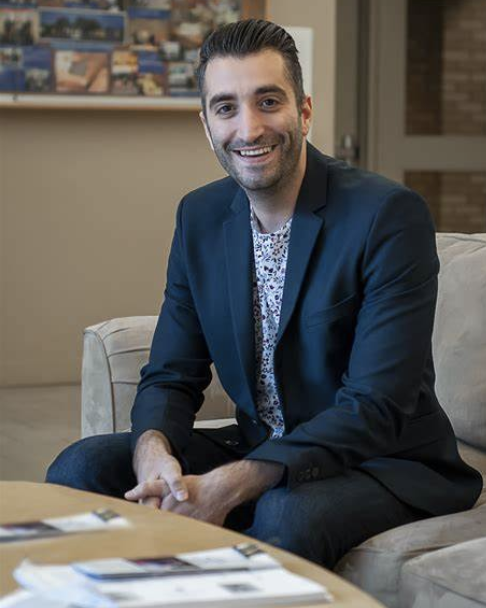 Michael Bennett, PhD
Michael Bennett, PhD
Alumnus Dr. Michael Bennett (MSW 2012, PhD 2023) is joining the School of Social Work on July 1, 2024, as a tenure-track faculty member. He will be teaching primarily in the MSWwp program. Bennett is also a proud alumnus of the School of Social Work. Welcome home!
Bennett spent four years employed as an Assistant Professor of Practice at the University of Texas at Arlington (UTA) in the School of Social Work where he taught a broad range of graduate-level courses including mental health policy, advanced direct practice, diversity and social justice, and palliative care social work. He has also served as a sessional instructor in the University of Windsor’s School of Social Work since 2019. In 2023, Bennett began a postdoctoral fellowship at the University of Windsor. His diverse skill set includes project management, program evaluation, counselling, case management, community outreach, supervision, and policy and service development.
Dr. Bennett’s service experience traverses a broad spectrum of practice. Prior to completing his master’s degree, he was employed as a program evaluation specialist in the public health sector. After obtaining his MSW, he spent ten years employed at the Hospice of Windsor and Essex County. His expertise in the field of hospice palliative care has been recognized throughout Canada. In April 2016, he proudly accepted Cancer Care Ontario’s Human Touch Award for his exemplary clinical practice in palliative care. In January 2018, he was appointed to Cancer Care Ontario’s Board of Directors and served as the palliative care consultant for the Ontario Association of Social Workers on an expert panel for the Registered Nurses’ Association of Ontario’s “End-of-Life in the Last Days and Hours: Best Practice Guideline.” In March 2018, he was awarded a Top 40 Under 40 Award by Leadership Windsor-Essex. In 2019, he co-founded and currently co-directs Oneday Dreams; a Canada-wide charity that fulfills dreams for adults who are over the age of 18 and in their last year of life. He was awarded the Ontario Association of Social Workers’ Inspirational Leader Award for role modelling in the profession, and the Ontario Association of Social Workers’ Community Contributor Award for his service to the community with Oneday Dreams. Dr. Bennett has been an invited speaker at over 30 international conferences.
Dr. Bennett’s research broadly investigates inequities and marginalization in the field of palliative care using interpretative methods. His work explores the impact of power dynamics and cultural issues on the provision of care, particularly for marginalized groups. His dissertation research examined the challenges faced by social workers in palliative care, including the devaluation of their profession and conflicts with the medical model. He has published numerous papers in academic journals related to death, dying, and end-of-life care.
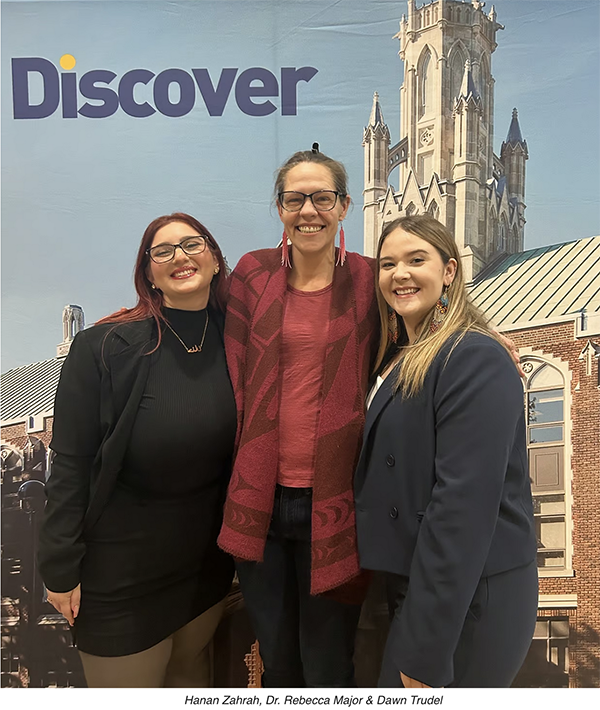 Political Science Research Assistants recognized
Political Science Research Assistants recognized
Hanan Zahrah (4th year Law & Politics) and Dawn Trudel (3L in Faculty of Law and UWindsor BA Honours graduate in Political Science) accepted a 1st Place Award at the University of Windsor's UWill Discover Sustainable Futures Conference for contributions to Equity, Diversity, Inclusion, and Decolonization (EDID).
This award is related to their work as research assistants for a SSHRC-funded project lead by Dr. Rebecca Major looking into the role of Indigenous women in governance and politics in Canada.
Like with all research, it requires context. Upon colonization, Indigenous women, who are often traditional leaders in their nations and communities, were stripped of agency and roles in governance. While many people celebrate the landmark decision in the Persons case as the moment women gained the right to vote in Canada, what many may not know is that Indigenous women were not afforded the right to vote until 1951. It was also not until 1951 that Indigenous people were able to hire a lawyer, seek legal advice, or otherwise organize, thus limiting tools to fight against the oppression of colonial governments and forces. As you can imagine, it takes time to heal and reorganize after years of dehumanization.
In recent years, there has been a noticeable increase in Indigenous female participation in politics and governance. This research seeks to answer the infamous question, "why?". What motivations did these women have to engage in these spaces? What kind of successes and struggles have they experienced on their paths into politics and governance? We are engaging with Indigenous women across Canada, across all levels of government, whether federal, provincial, or at a nation-level, to try and answer these questions.
Overall, the projects seek to uplift participant voices and share their stories. We also want show to the younger as well as future generations of Indigenous children that they have these remarkable role models, and to demonstrate that they belong at any seat of any table they want to be a part of. As Dr. Major always says, "There is power in working within institutions, to change them for the better.”
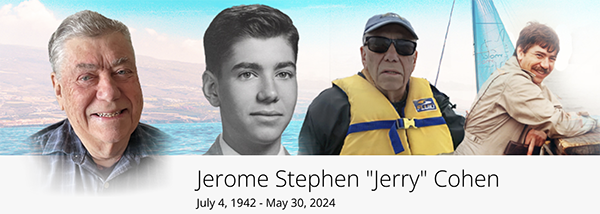
We are saddened to share the news that Dr. Jerome Cohen, professor emeritus, a long-time member of the Psychology department has died.
Jerry, who retired in 2022, passed away May 30 in London from complications following heart surgery earlier this spring. He was 81.
Here is the link the Windsor Star's obituary article:
https://windsorstar.com/news/local-news/obit-uwindsor-scientist-adventurous-aggressive-in-dementia-research
And, Families First, Amhertsburg's obituary: https://www.familiesfirst.ca/memorials/jerome-cohen/5439210/
Everyone in FAHSS offers our sincere condolences to Jerry's family, friends and colleagues.
Help Us Spread The Word!
If you like our newsletter, please consider forwarding this email to a friend and ask them to sign up to receive it in their inbox. This fall, The FAHSS View will move to a monthly newsletter.
Arts, Humanities & Social Sciences hosts many concerts, recitals, exhibitions, screenings, workshops, and guest lectures throughout the school year. Sign up to receive our occasional event emails about all the events happening!


